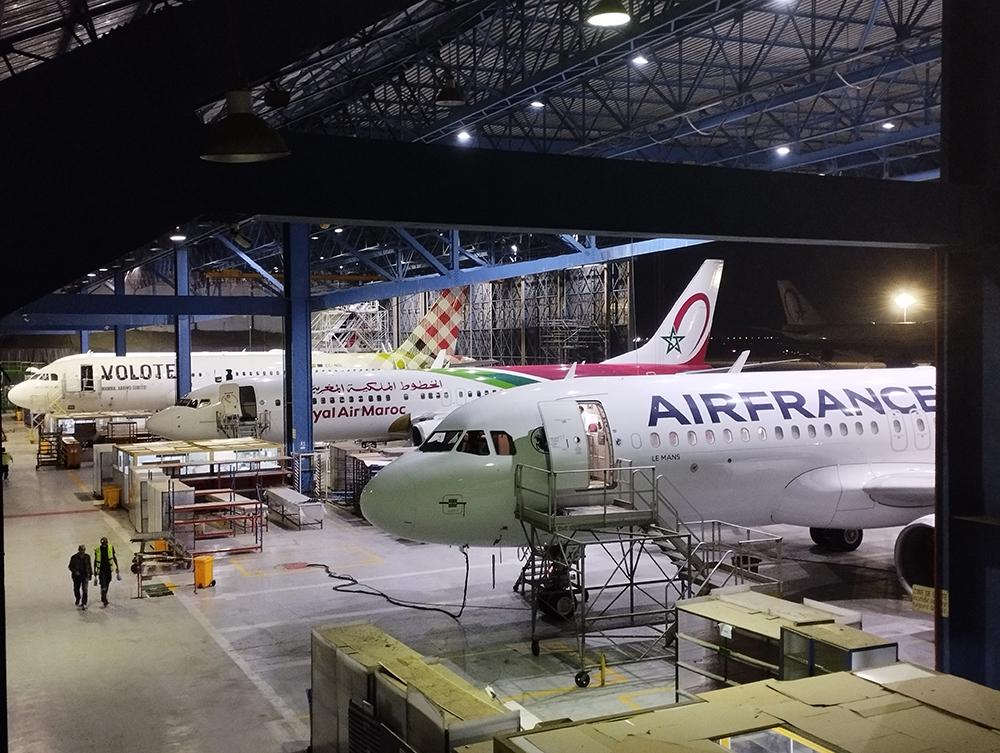
African MROs want a greater share of aircraft maintenance spending, and some are actively implementing strategies to increase their third-party business.
The aircraft maintenance sector in Africa is valued at $32.6 billion between 2024-33, according to Aviation Week Network data, and a chunk of that supposedly goes to MRO providers outside the continent. However, more local providers want in on the action.
South African Airways Technical (SAAT) is focusing its growth strategy on Airbus product capabilities. “We are fortunate to be one of the largest MROs with Airbus capabilities in Africa,” says Wellington Nyuswa, the interim CEO at SAAT.
Nyuswa believes the African market is responding well to the intake of Airbus products, and SAAT claims to be the only MRO in the region to offer that extensive Airbus capability. “We are in a position to grow the market, and we will continue to invest in new-generation products to meet the future MRO demand for new aircraft types,” he tells Aviation Week Network. Specifically, Nyuswa mentions the A220, A330neo, A350 and A320neo.
In fact, new-generation aircraft types continue to trickle in. For example, Nigerian operator Ibom Air took delivery of its second A220-300 this month, and nine more are expected in the coming years. The delivery schedule will likely depend on available capacities at the OEMs, considering all the production and engine technical issues they are facing.
“We will continue to nurture working relationships with African airlines to build and grow the third-party market share in the continent and beyond by providing flexible payment plans and competitive labor rates,” Nyuswa says.
Meanwhile, Aerotechnic Industries (ATI) in Morocco has built up its full base maintenance capabilities on Boeing 737NG, 737 MAX and A320ceo and A320neo family aircraft at its facility in Casablanca.
ATI is placing more emphasis on new long-term contracts and partnerships, focusing on airlines seeking reliable services and turnaround times. “Our operations are organized to manage anticipated workloads over several years,” says Loic Gelebart, ATI’s general manager. “Under these conditions, ATI leverages an industrialized and adaptive organizational model to deliver exceptionally competitive services and pricing.”
In 2022, ATI successfully secured Spanish low-cost carrier Volotea’s request for proposal for its fleet of 40 A320 aircraft, covering five years of base maintenance services. “Two years following this contract, the customer is happy and requested an increased workload from us,” reports Gelebart. Consequently, ATI is building a new hangar to open in 2025 with three additional lines dedicated to A320 and 737 activities.
Gelebart adds: “Furthermore, in Africa, we continue to explore similar opportunities, particularly targeting operational slots during the summer and its shoulder seasons.”
Nearby, the key strategies at EgyptAir Maintenance & Engineering include developing customized pricing models and service packages to cater to the specific requirements of each third-party client—while noting that different airlines have unique needs. The Cairo-based MRO is also exploring strategic partnerships with local companies in Africa to expand service offerings and enhance its reach within the continent.





